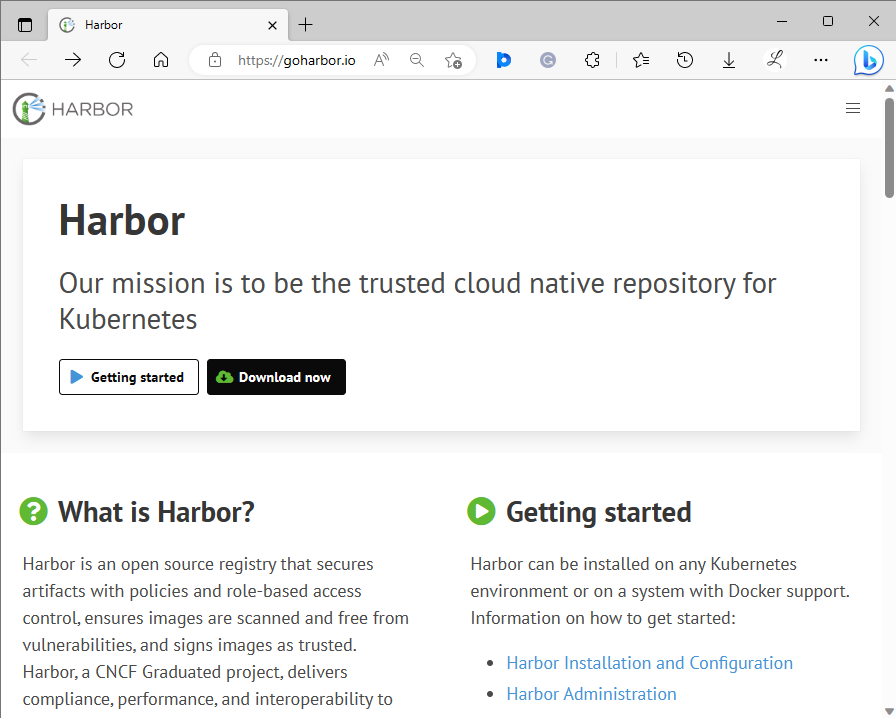This study will explain Harbor, its advantages, and its disadvantages.
What Exactly is Harbor?
Harbor is a cloud-native container registry developed by VMware. It enables users to keep, organize, and distribute Docker images. It includes features such as role-based access control, image scanning for vulnerabilities and compliance, replication and mirroring, and support for multi-tenancy.
Harbor can be integrated with Kubernetes, Jenkins, GitLab, and Docker Swarm to permit developers to deploy and handle services and applications in a packaged environment.
Use Harbor using its official website:
Advantages of Harbor
- It provides advanced security features such as role-based access control, image signing, and verification that help users to ensure the security and integrity of their images and prevent unauthorized access.
- It is developed to be extremely scalable which permits users to easily manage a large number of container images.
- It enables users to replicate images across multiple registries and regions to improve availability and performance.
- It can be deployed locally or in the cloud and give more control over the registry and resources.
- It can be integrated with a variety of container orchestration forums, such as Kubernetes, Jenkins, and Docker Swarm.
- It is highly configurable and allows users to customize it to meet their specific needs.
Disadvantages of Harbor
- It is complex to set up and configure Harbor, especially for users who are not familiar with container registries.
- It requires a lot of resources and configuration to run smoothly.
- Users need to monitor and troubleshoot potential issues such as network latency, storage capacity, or security, etc.
- It might not be compatible with older container platforms or tools.
- It can require a lot of resources, particularly if users have a large number of container images.
- It is hard for users to understand some of the features or functionalities of Harbor or how to use them effectively.
Conclusin
Harbor is a part of the Cloud Native Computing Foundation (CNCF). It is a container registry that permits users to keep, organize, and distribute Docker images. It supports multiple authentication methods and access controls to easily manage access to container images and prevent unauthorized access. It also enables users to replicate images across multiple registries and regions to improve availability and performance.

